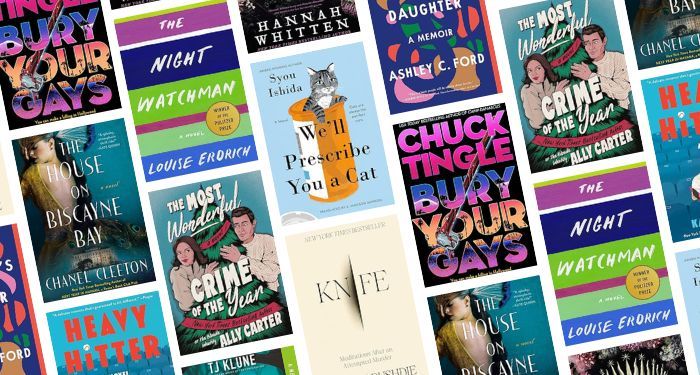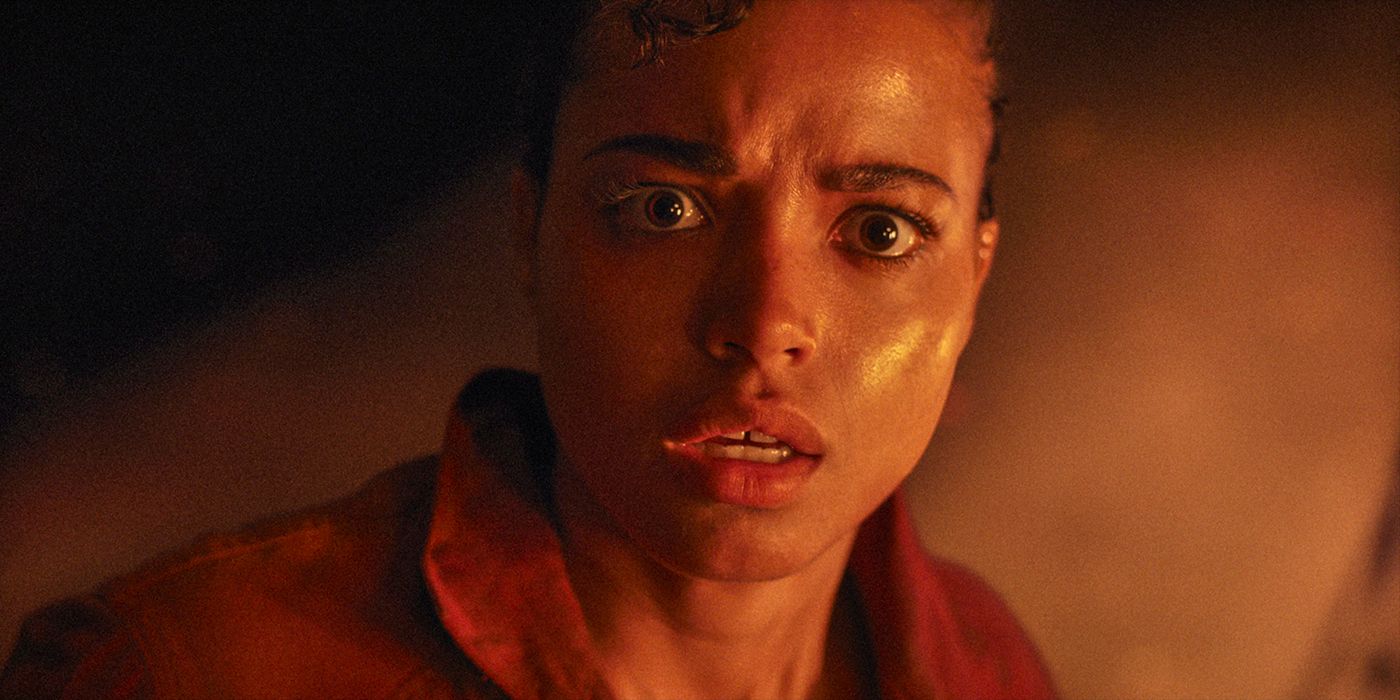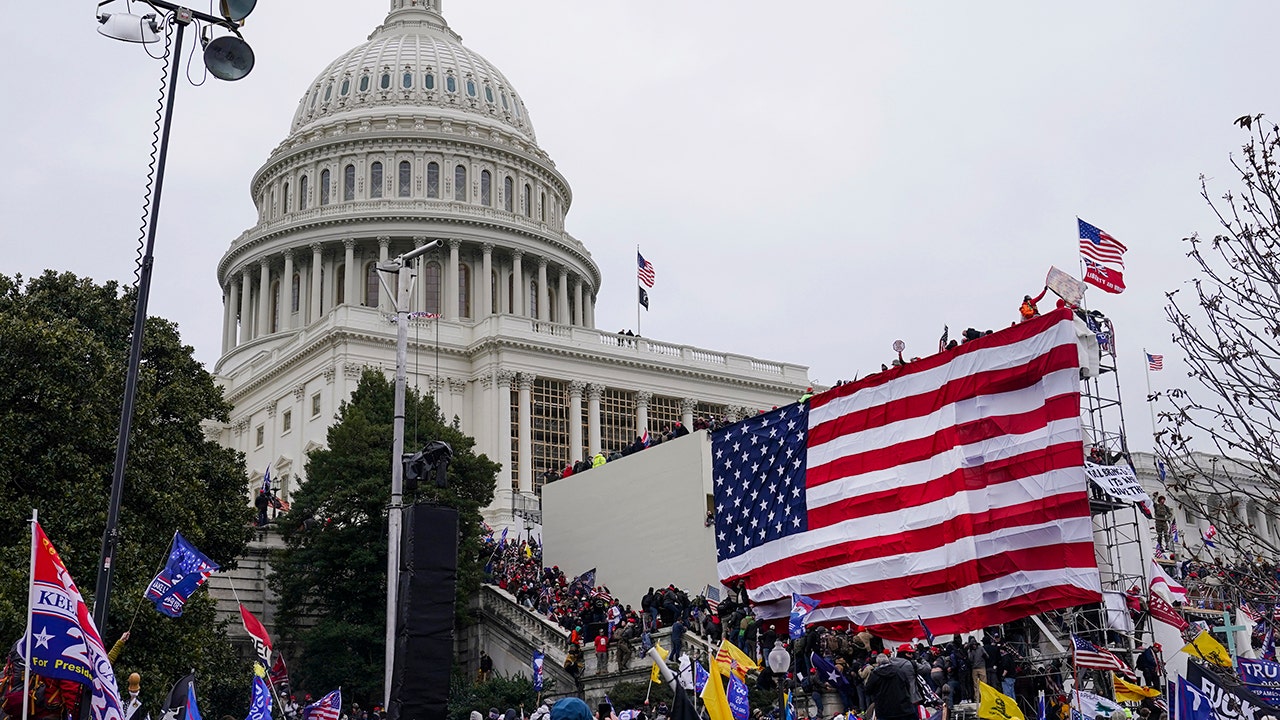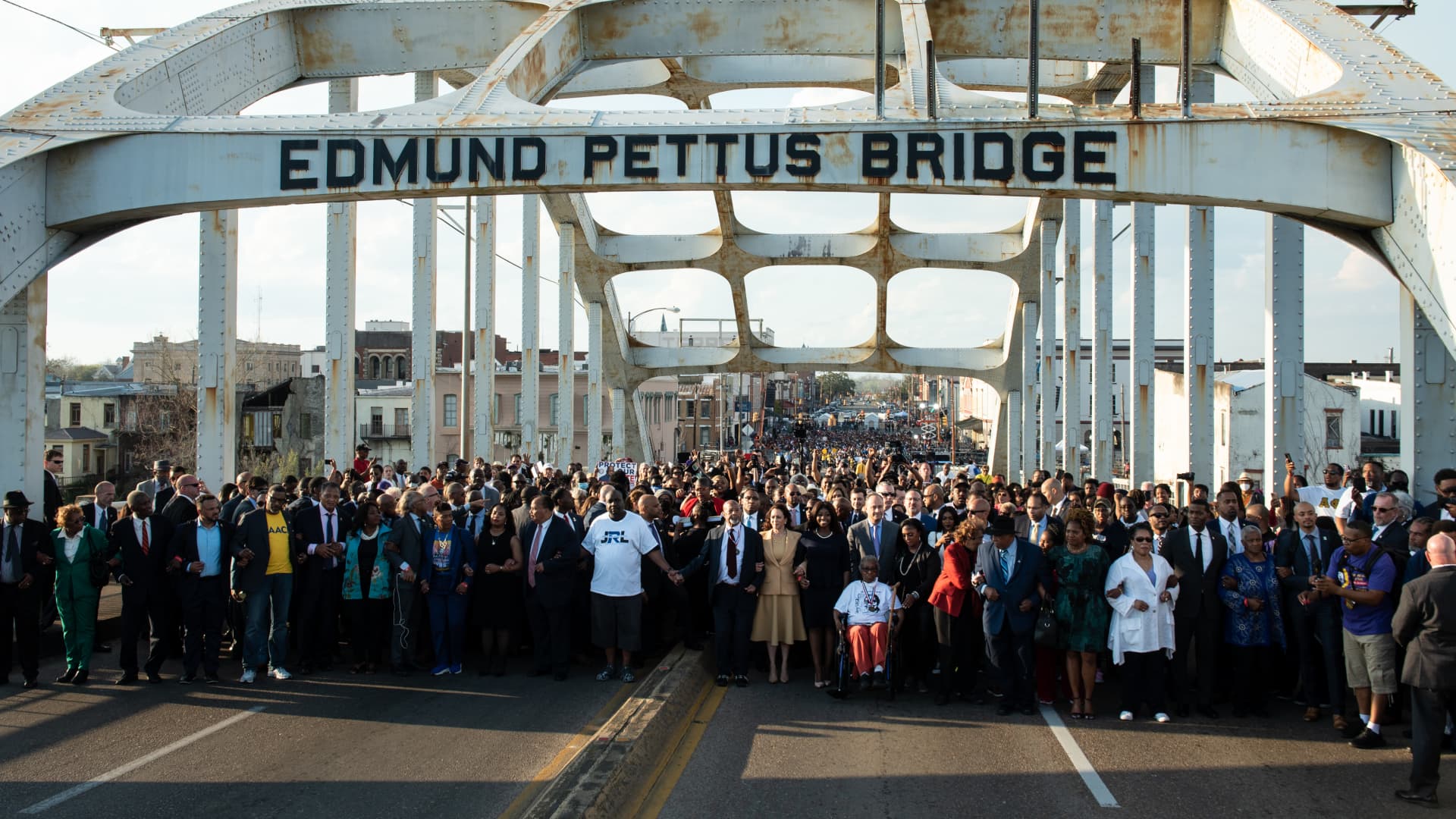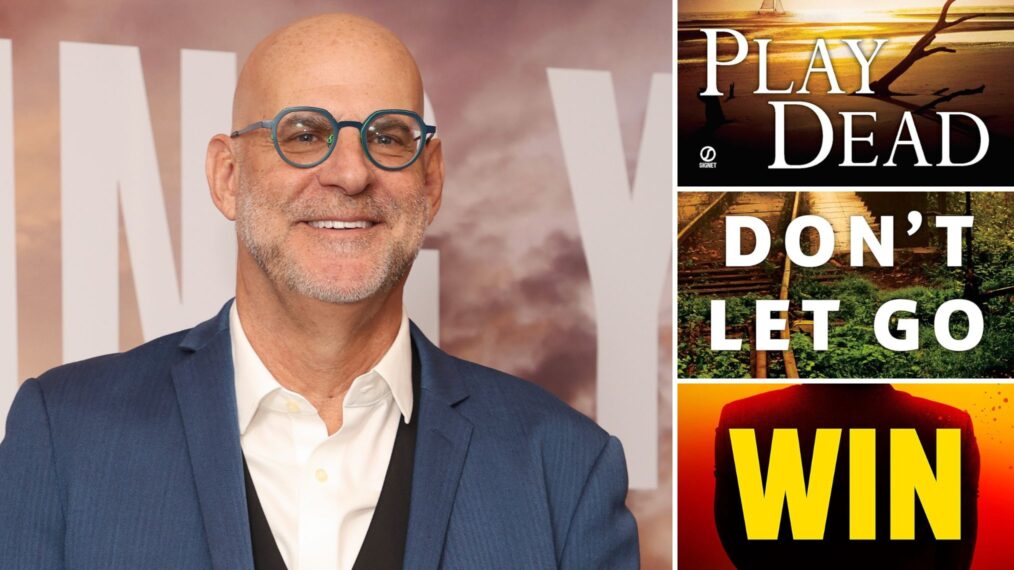The Resident Evil franchise is moving in a bold new direction with upcoming live-action Netflix show. The series centers on Jade Wesker, daughter of iconic video game character Albert Wesker, across two timelines in which she learns of his and Umbrella’s dark past in her teenage years and fights for survival in a world torn apart by the T-virus.
Ella Balinska, well known for starring in the Charlie’s Angels movie reboot, leads the cast of Resident Evil as an adult Jade alongside Lance Reddick as Albert Wesker, Tamara Smart as a young Jade, Adeline Rudolph, Siena Agudong, Paola Núñez and Turlough Convery.
Ahead of the show’s premiere, Screen Rant spoke exclusively with composer Gregory Reveret to discuss Resident Evil, his love for the video game franchise, crafting an authentic South African sound to pay homage to his hometown and hiding Easter eggs throughout his score.
Screen Rant: The Resident Evil franchise is, of course, one of the most iconic when it comes to the horror genre. What was it about the show that really got you to want to be a part of it?
Gregory Reveret: I grew up playing the game. Like a lot. I don’t just say that because this is an interview, I remember everyone was playing Grand Theft Auto and I really extensively spent a big chunk of my upbringing playing Resident Evil. When I read the scripts, it was such a cool extension, but still honoring the story, being very careful to pay attention to the details of the original story and then giving it this new, bada– adventure.
I think what I always liked about Resident Evil is it’s not straight horror, it’s not like Texas Chainsaw Massacre nightmare fuel, it’s the kind of horror that’s fun that you participate in that you could watch with your family. Also, it being based in my hometown, Cape Town, was a big thing for me, because I was like, “Wow, that’s gonna be fun to score, finally I get to actually record local music from a South African’s perspective.”
Usually, when I hear scores that are based in South Africa done by an American composer, it’ll kind of be what you expect to hear. But because of the age of the characters in the show, I would say Gen Z, it’s like, “How would the score sound like from their perspective in South Africa, instead of it being [typical] African music.” So there’s a whole bunch of things to consider. I was like, “Wow, this is cool.” Beyond it just being a major franchise or whatever, I was, like, “This is cool and, also, it has to be done right.” It’s something that I really was like, “Don’t f–k this up!” [Laughs]
I felt the same way when I first heard about the show, but I think they’ve found a really good way of bringing an original take to it within the games’ mythology. You just talked about trying to find that South African, younger character tone, but what was it like really trying to find that balance between honoring the game’s score and coming up with your own material? Because I did hear a lot of little nods, especially the dog scene. I recognized that right away as the hallway from the original Resident Evil game.
Gregory Reveret: I literally got goosebumps that you said that. Wow, I’m blown away, because I was like, “I wonder if anyone’s gonna pick that up.”
I love the games, I just replayed the original Resident Evil remake like a month ago.
Gregory Reveret: It was fun, man. Initially, I put forward a more straightforward [score] to the Japanese style, which was more piano heavy, the original is very piano and strings. Then the producers were like, “You can be more adventurous,” so I kind of went a little further with that. But yeah, there’s some cool things and there’s some Easter eggs.
The producers were really engaged, we were emailing each other a lot, digging back into the old games, which wasn’t easy to find, because you can’t buy the stuff, it’s from like 1998 or whatever. [Laughs] The thing that I wanted to do was I wanted to do an action-adventure and I was like, “What does that sound like? Why does sci-fi have to sound like sci-fi, action have to sound like action?”
Going back to the thing of what I was saying is like, I remember growing up, Resident Evil was fun, it was horror, but it was fun, and I was like, “Okay, well, how do we do that? What would it sound like if Star Wars was a horror? What would it sound like if Mad Max was horror or what would it sound like if Superman was horror?” Every time I looked for scores, I was like, “Well, that just sounds like scary music.” I think [having] African percussion, having the players from South Africa was a big thing, just having the sound was very different to the other orchestras that I’ve recorded.
Using some very talented [artists], Zolani Mahola, who’s probably one of the most famous singers in South Africa, she sings on the score, and then having this classic action sound. Then on the flip side, you have more industrial [sounds], with Jeremy on the vocals doing that falsetto, that was a very classic sound. I think that’s what I wanted, I wanted to give something that sounds unexpected and ties in all of those elements.
So, if memory serves me right, this was your first major project as a sole composer, is that correct?
Gregory Reveret: That’s correct, yes.
What was that like for you?
Gregory Reveret: It’s a big responsibility, for sure. I am grateful for my [prior] experiences, I worked under Junkie XL, who has taught me everything that I know. When you’re working with a franchise with such high pressure, there’s a lot of stuff that you have to juggle, there’s a lot of opinions. It’s not just singular, it’s coming from all directions, and then on top of that, it’s music, so it’s very subjective. So everyone is like, “No, it should be like this. Well, I think it should be like that” and then they have the conversations amongst themselves and you have to figure [a middle ground], so there is certainly a lot of variables.
But it was great, everyone was really great, everyone was very supportive, Andrew was extremely supportive. It’s not the first experience that I’ve had, but it was for sure the first time that the responsibility was all mine. I took it very seriously. I remember I’d wake up every day at 2 a.m. or 3 a.m., because I’d record the orchestra in South Africa, so they’re on a different time schedule. I run a very tight ship. [Laughs]
Was this recorded in the midst of COVID production, because I’ve spoken with a few composers and musicians who have worked during that time and they’ve told me it was quite the challenge doing that?
Gregory Reveret: It certainly was, especially in South Africa, because they took it a lot further than what we experienced in California. I think at the peak of their lockdowns, they had curfews, you couldn’t even walk your dog around the block, you could only take your dog to the stairs of your apartment building and they banned alcohol and tobacco. So yeah, man, it was a little challenging. I recorded a small ensemble and then we brought some people back, because there was some patchwork. Yeah.
Well it’s amazing that you pulled it off with that challenge. In addition to your score, this series has a lot of really great licensed tracks, were you involved in putting together and finding some of those tracks for these episodes?
Gregory Reveret: No, not at all. That’s a completely different department, that’s the music supervisor, Justin Kamps. But yeah, for sure, the licensing with the two Billie Eilish tracks like, wow.
As a fan of the games, it’s great to not only hear the various Easter eggs, but to get to directly hear Moonlight Sonata return. What was it like for you getting your hands on that song and put it in the show?
Gregory Reveret: It was a lot of fun, actually. It was a whole process. They had a piano teacher, Toni Crichton, who trained the actors to [play it]. A lot of times you just see fingers noodling on a camera and it’s not what’s actually audibly being played, so they trained the actors and I was in contact with her a lot. We spoke for hours and hours and hours about the angle and how they should play and the recording.
I think what I did was I recorded it here, I sent it back there and they recorded it in South Africa and then they brought it back to me, and then I started working from there, then they lined it up to the cuts. A lot of effort went into that, it was pretty extensive. I was quite impressed with the lengths that the producer went to for that scene.
Resident Evil Synopsis
Year 2036 – 14 years after the spread of Joy caused so much pain, Jade Wesker fights for survival in a world overrun by the blood-thirsty infected and mind-shattering creatures. In this absolute carnage, Jade is haunted by her past in New Raccoon City, by her father’s chilling connections to the sinister Umbrella Corporation but mostly by what happened to her sister, Billie.
Check back soon for more interviews with the cast and crew of Resident Evil.
Resident Evil begins streaming July 14 on Netflix. Audiences can listen to Reveret’s soundtrack here.
About The Author














































